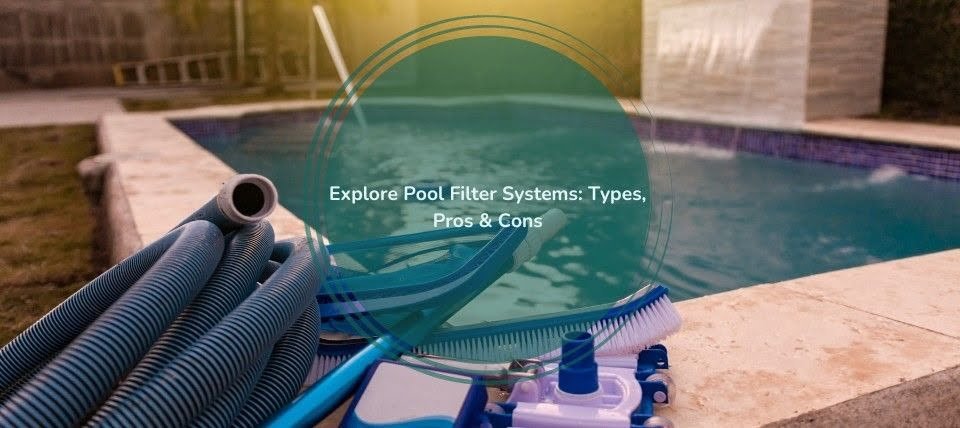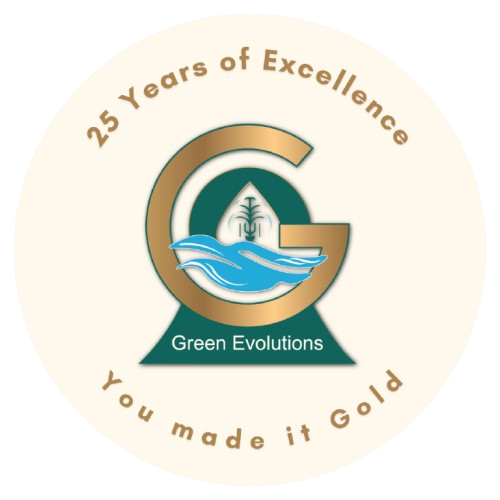Learn more about pool filters through this all-inclusive guide
Maintaining the water’s pH level is crucial, and a pool filter system helps to keep contaminants away, thereby ensuring that the pool’s pH level stays balanced.
A pool filter is an essential piece of equipment that you’ll need after installing a pool. Its role is to filter out impurities from the water, which would otherwise make it slimy, disease-ridden, and unpleasant to look at. Nobody wants to swim in a pool that poses a risk of waterborne diseases.
The pool filter separates organic matter from the water to prevent algae buildup. Maintaining the water’s pH level is crucial, and a pool filter system helps to keep contaminants away, thereby ensuring that the pool’s pH level stays balanced.
Let’s explore the different types of pool filters to determine which one is suitable for different individuals.
A Closer Look at Pool Filter Systems: Finding the Perfect Fit
Cartridge pool filter:
Cartridge pool filters are highly effective in removing tiny particles that are as small as 10 microns from pool water. This ensures that the water in your pool remains clean and free of debris. These filters consist of a fabric wrapped around a core that traps the debris.
One of the best things about using a cartridge pool filter is that it does not require backwashing, which is a common requirement for many other pool filter options. By not having to backwash, it saves thousands of gallons of water. Moreover, cartridge pool filters are low maintenance, although the frequency of maintenance depends on how much sunscreen is being used in the pool.
Sand filters:
Sand pool filters are an affordable option for pool filtration. They are capable of filtering out contaminants as small as 20 to 40 microns, which is more than enough for residential pools. A sand pool filter is sufficient for most average-sized residential pools and is easy to maintain. You can simply backwash the filter without the need for disassembly. Sand pool filters are more durable than other types of pool filters.
Diatomaceous earth filter:
If you want exceptionally clean water at all times, then the Diatomaceous Earth (DE) filter is a great option for you. It can filter particles as small as 2-5 microns. One of the significant benefits of DE filters is that they don’t require frequent maintenance, as they can form a layer of impurities on the filter grids, which allows for longer intervals between backwashing or manual cleaning.
DE filters are more energy-efficient compared to other filters as they put less strain on the pool pump, resulting in cost-effectiveness. If you are environmentally conscious, you’ll appreciate having DE filters around because they consist of biodegradable materials that can later dissolve without causing any harm to the environment. Unlike other filters that contain additives, chemicals, and toxic substances, DE filters are free from impurities like such.
The cons of each of the pool filter
Cartridge:
Cartridge pool filters are more costly compared to sand pool filters. Nevertheless, they require very little maintenance and are energy-efficient. Although the initial expense might be high, the long-term savings may compensate for it, as these filters usually have a longer lifespan. However, they need to be replaced entirely when clogged with debris, which can result in additional replacement costs.
When considering installing cartridge filters, it is necessary to take into account the cleaning frequency. While they do not require thorough cleaning every time, they do need occasional cleaning and rinsing during peak swimming season. Cartridge filters have a slow flow rate, leading to longer pump times and slower filtration rates. This can be a concern for pools with high flow rate requirements.
Sand filters:
Sand pool filters are known to be less effective at cleaning pool contaminants compared to other filter types. As a consequence, they may not be able to trap as many impurities, resulting in less clear water and a higher dependence on chemical treatments.
Moreover, sand pool filters have a lower filtration capacity as compared to other filters, which necessitates frequent backwashing. Unfortunately, this backwashing process leads to water wastage. With time, the sand filter becomes saturated with contaminants, which further reduces its effectiveness.
Diatomaceous earth filter
DE pool filters have certain drawbacks that you should be aware of. One of the main disadvantages is that they require maintenance. Recharging the filter with DE powder can be time-consuming and messy. Also, the filter grids must be cleaned thoroughly to ensure optimal performance. Additionally, DE filters should be backwashed on a regular basis to remove debris buildup. This maintenance process can be challenging for some pool owners and may require specialized equipment.
Installing a pool filter system is crucial for any pool owner who wants to maintain clean and safe pool water. Each pool filter type has its advantages and disadvantages that depend on your pool size, usage, and maintenance needs. The cartridge pool filter is low maintenance and highly effective in removing tiny particles, while the sand pool filter is affordable, durable, and easy to maintain.
The Diatomaceous Earth (DE) filter is the most efficient in filtering out impurities, is cost-effective, and environmentally friendly. Understanding the pros and cons of each type can help you make an informed decision about which pool filter system is suitable for your needs.





